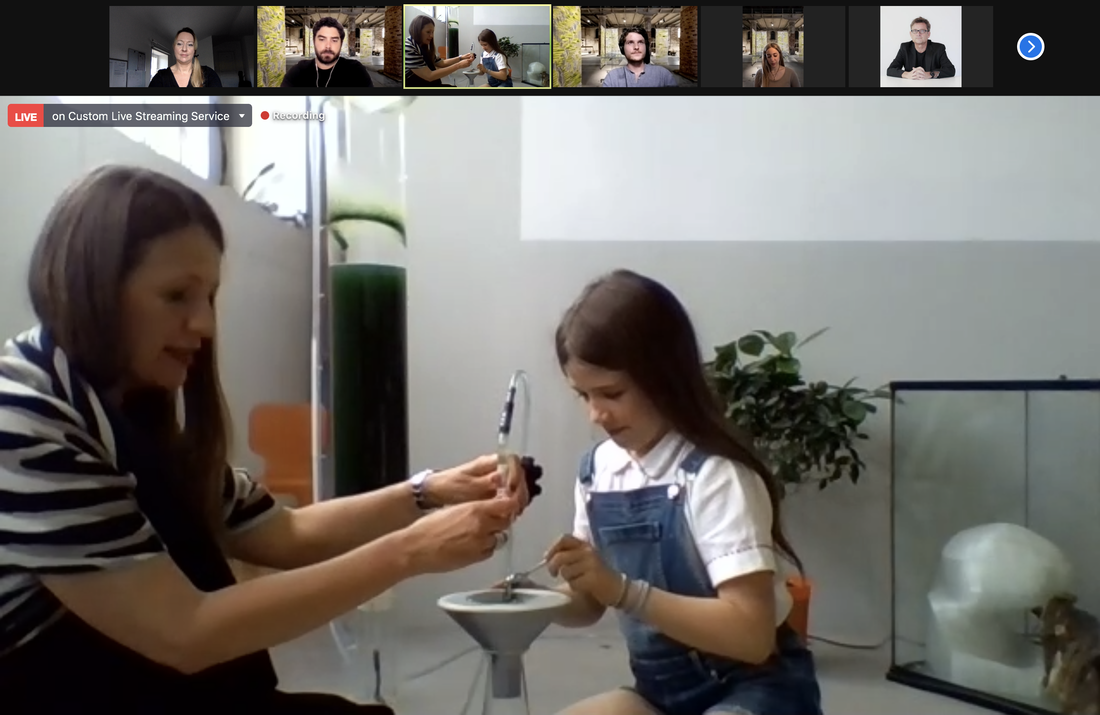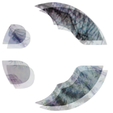|
On June 5th I had the pleasure to join Prof. Claudia Pasquero, Dr. Marco Poletto, and their ecoLogicStudio research partners from the Urban Morphogenesis Lab at The Bartlett and the Synthetic Landscape Lab at Innsbruck University, Oscar Villarreal, Eirini Tsomoukou, and Korbinian Erzinger, together with Neil Leach for the Bio.Bio.Bot talk, as part of the DigitalFUTURES series. Exploring the studio's explorations at the edge of ecology, biology, architecture, and urban design, our discussions centred on their latest work, which shown as part of the Future Assembly at the Venice Biennale 2021 interrogates a new type of biological intelligence system applied to the urban realm. In this system, algae cell behaviour is the core biological engine transferring distributed intelligence across a biotechnological architecture. But, complex though the construct is, an experiment in domestic cultivation of the urban microbiome, the studio's exhibit for the Biennale expressed its key tenets in a visceral, tangible, and relatable way. The product of over a decade's bio-digital research, Bit.Bio.Bot brings together several of the studio's computational design methods [BIT], its proprietary fabrication techniques [BOT], to enable the implementation of its microbiological cultivation protocol [BIO]. Its interconnected systems include a living cladding system composed of ten 'PhotoSynthEtica curations' which both serve to enable the micro-algae growth with the aid of a bio-gel medium, while also providing screening and shading; a vertical garden which, 3m tall and containing the proprietary domestic algae farming system, which is made of lab grade borosilicate glass and 3D printed bioplastic components in the form of 'Bio-Bombolas', facilitates intensive algae farming; and the 'Convivium', which is a space for sharing and consuming the edible fruits of the experimental biolabours. The latter is comprised 36 bespoke pieces of crystal glassware designed for the consumption of the Chlorella and Spirulina produced by the urban farming system, which are arranged across a purpose-built table. Once the Biennale is over the installation will be relocated to Tyrolean landscape, where it will become an educational algae garden focused on the issue of future food. Watch our discussions in the YouTube recording of the talk below, and find out more about the DigitalFutures project here.
0 Comments
Your comment will be posted after it is approved.
Leave a Reply. |
AuthorMelissa Sterry, PhD, chartered design scientist, systems theorist, biofuturist, and serial founder inc. Bionic City® Bionic CityAsking the question "how would nature design a city" since 2010.
Archives
October 2023
Categories#bionics
#biotech #biodesign #bioscience #biomimetics #biotechnology #bioengineering #bioinnovation #bioaesthetics #biorevolution #bioenterprise #biosystems #biocreative #biofuturism #biofutures #biocentric #biofacture #biotecture #biovation #biofiction #biourban #biocities #biolab #bioart #STEM
#STEAM #STEAMED #STEMcomms #STEAMcomms #STEAMEDcomms © Bioratorium Limited & Melissa Sterry
2021 All Rights Reserved |

 RSS Feed
RSS Feed

